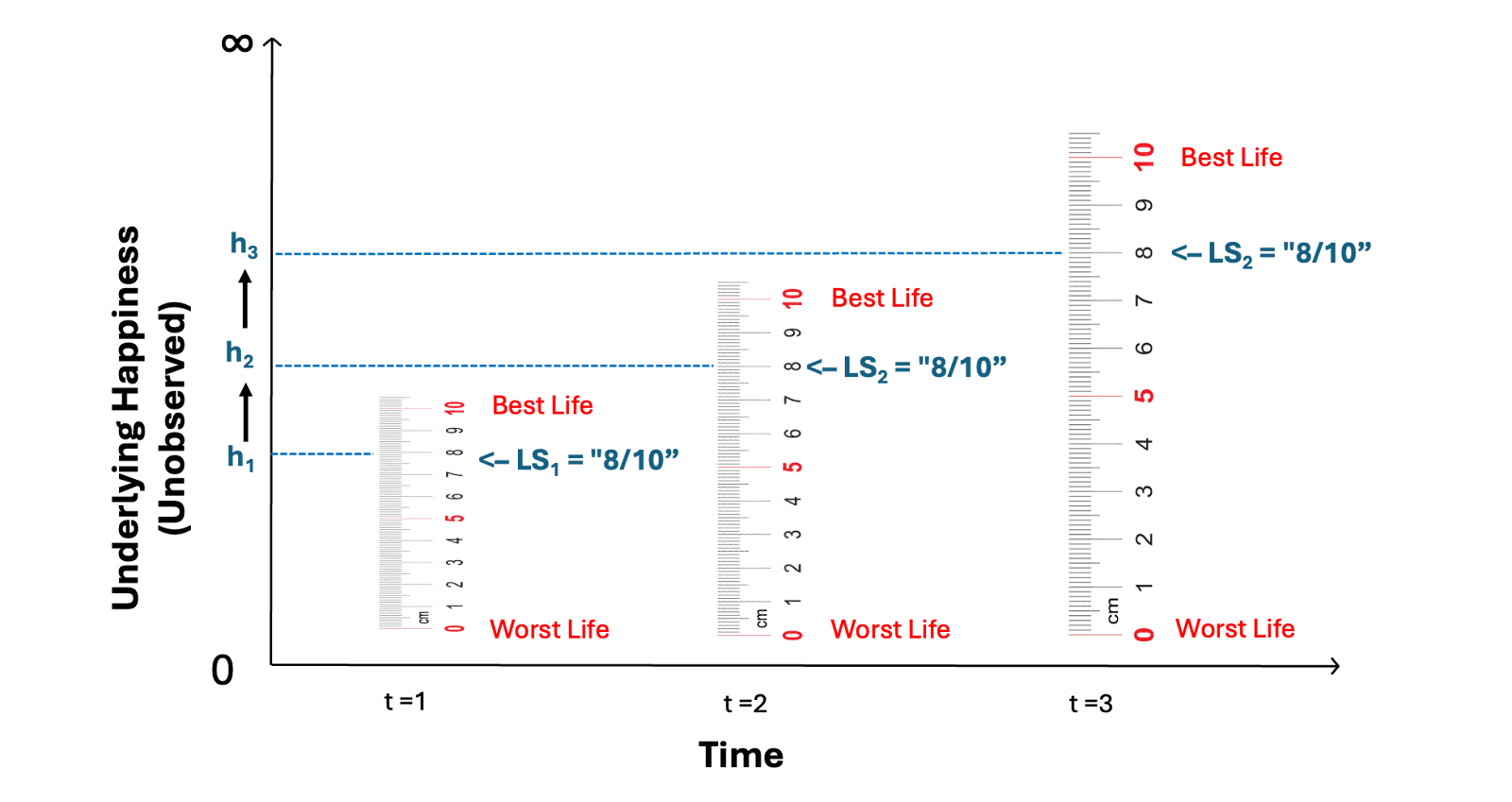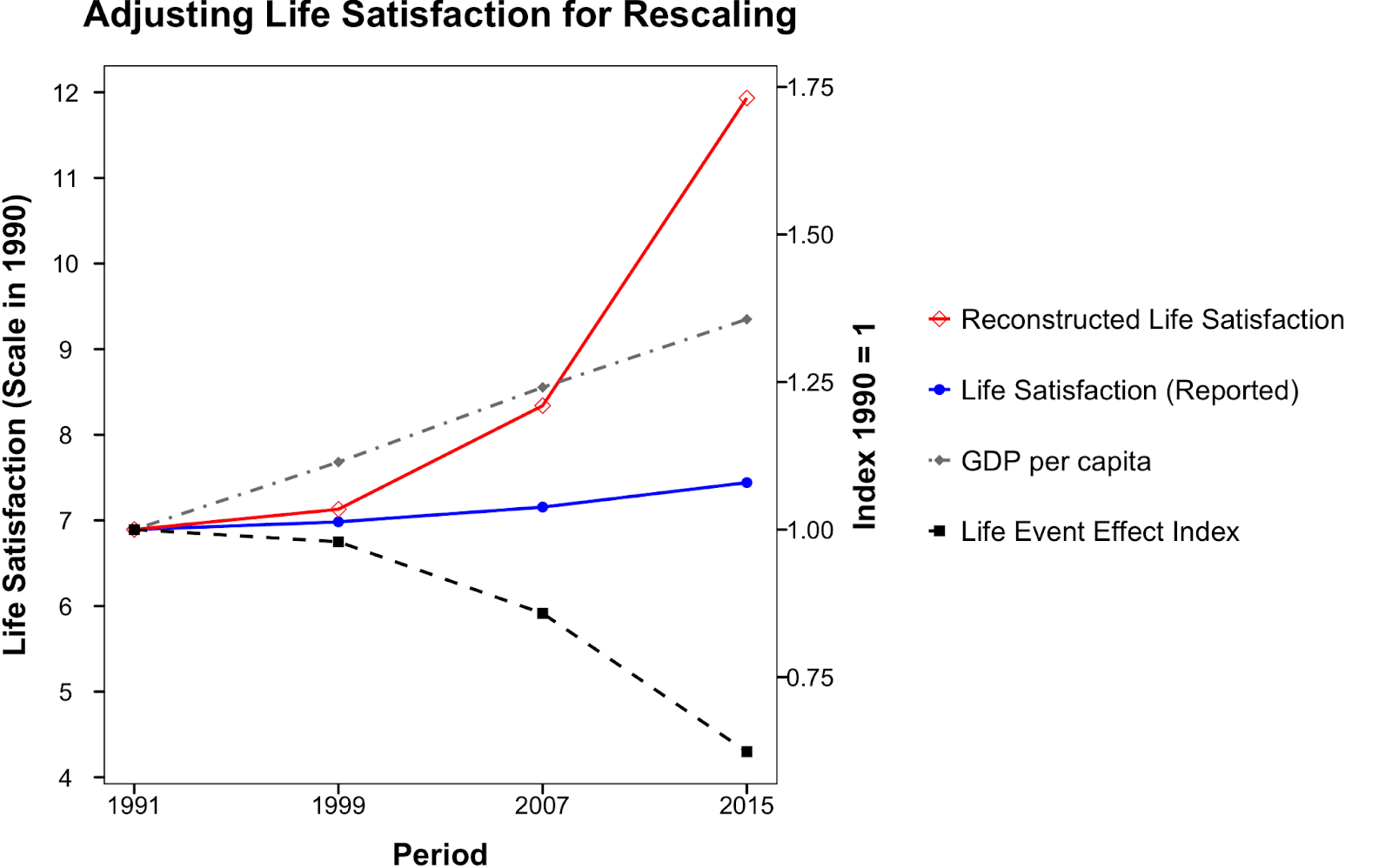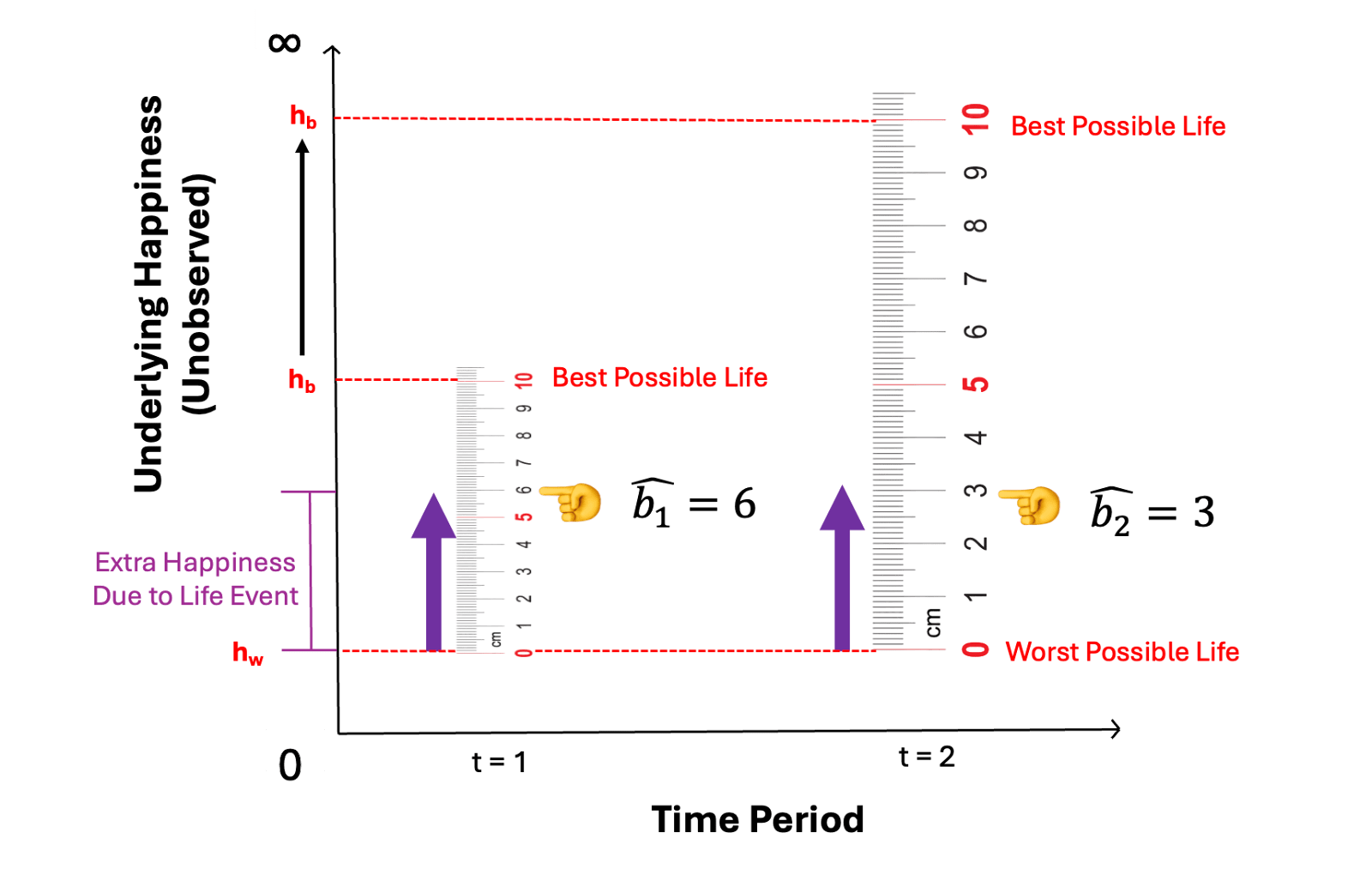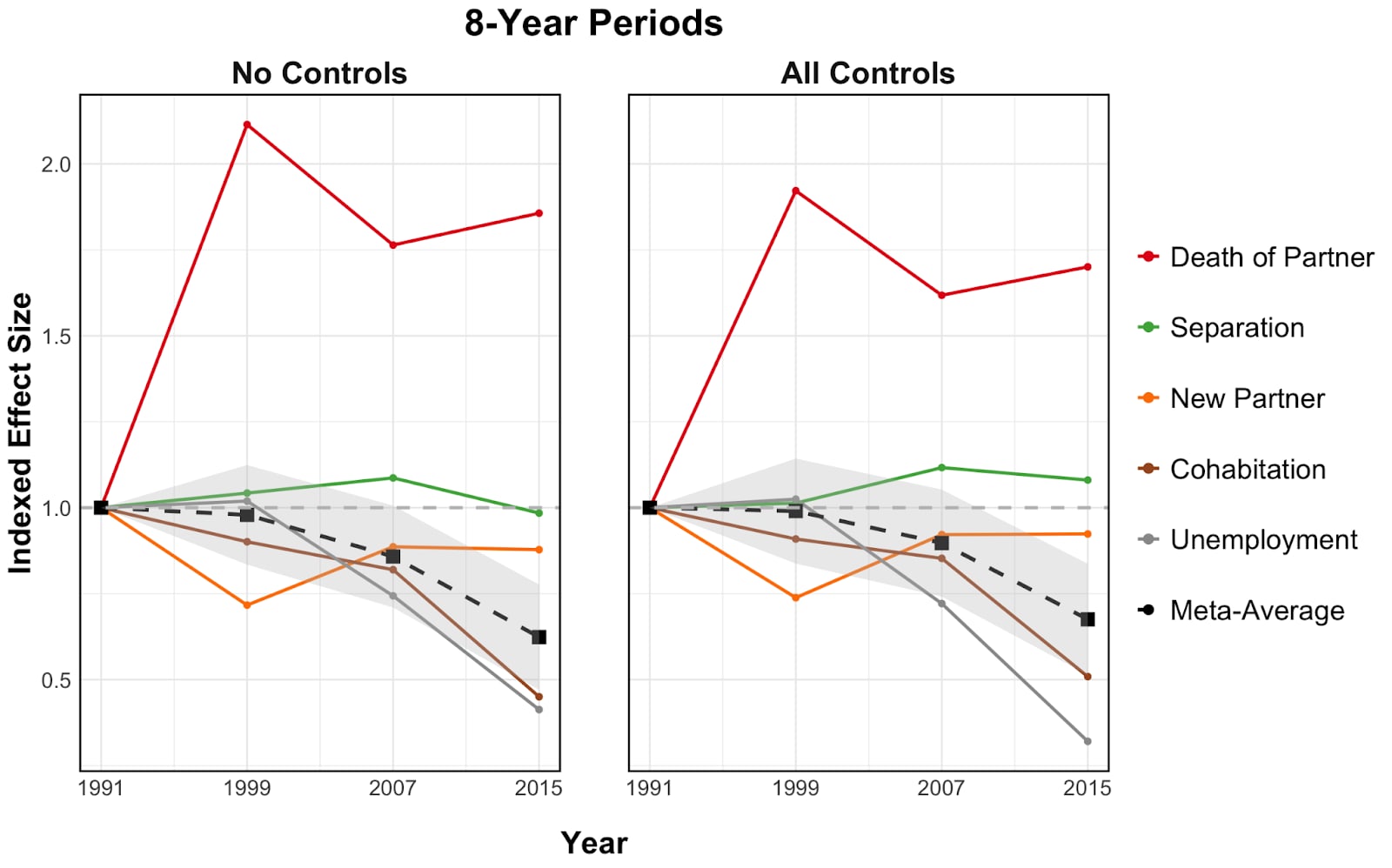
 EA Forum Podcast (Curated & popular)
EA Forum Podcast (Curated & popular) “Rescaling and The Easterlin Paradox (2.0)” by Charlie Harrison
Jun 4, 2025
Charlie Harrison, author and researcher, discusses the Easterlin Paradox, which reveals that economic growth doesn't always equate to increased life satisfaction. He explores the concept of 'rescaling,' suggesting that true happiness may be underestimated in traditional measures. In collaboration with academics Caspar Kaiser and Andrew Oswald, he examines how life events might appear less significant on an extended scale, opening up intriguing implications for how we perceive well-being and happiness over time.
AI Snips
Chapters
Transcript
Episode notes
Easterlin Paradox and Rescaling
- Life satisfaction appears flat over decades despite massive economic growth, known as the Easterlin Paradox.
- Happiness may actually be rising but is reported more conservatively due to rescaling of the reporting scale.
Happiness Scale Stretching
- The happiness reporting scale may stretch over time, altering how true well-being maps to reported satisfaction.
- If the scale stretches, constant reported happiness could obscure real happiness improvements over time.
Testing Rescaling via Life Events
- Testing rescaling by examining if the emotional impact of life events lessens over time offers an empirical approach.
- If the happiness scale stretches, the same life events should appear to move reported happiness less in later years.




